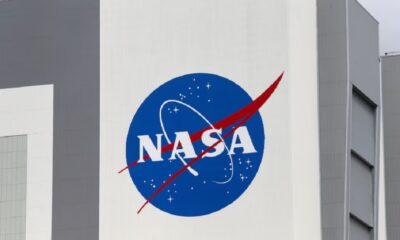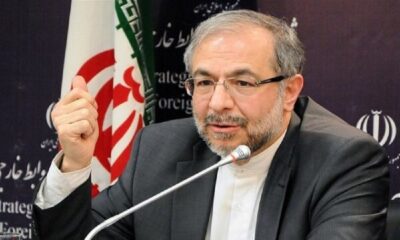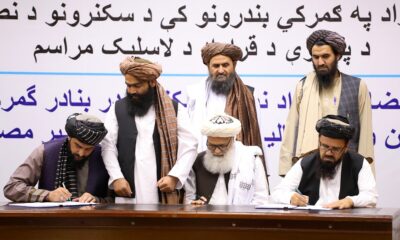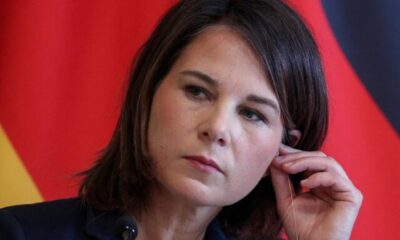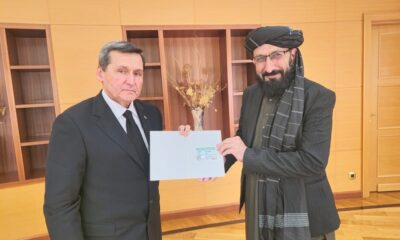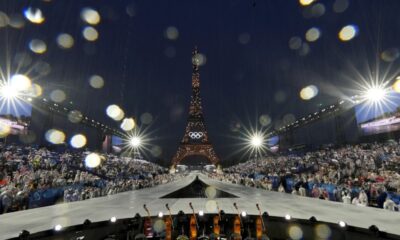Regional
Fire kills 10 members of family in Pakistan
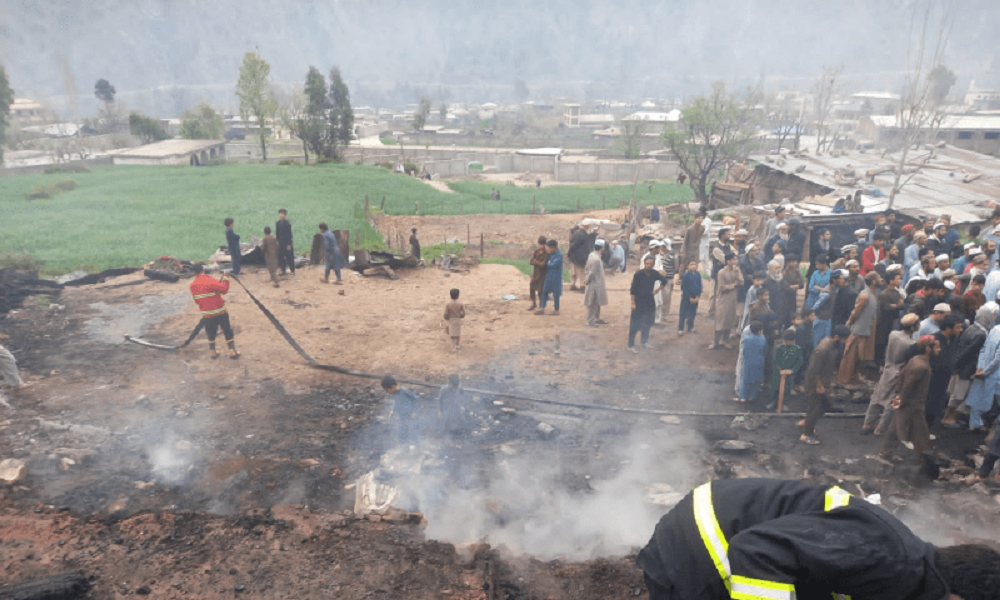
At least 10 people, including children and women, were killed and three injured in a fire incident early Friday morning in the Seri area of Pattan, the district headquarters of Khyber Pakhtunkhwa’s Lower Kohistan, Dawn reported.
Lower Kohistan Rescue 1122 spokesperson, Farman Ali, said that the fire erupted in a wooden house due to an electric short circuit in the early hours of Friday when the residents were asleep.
As a result, the house’s roof collapsed, leading to the deaths of 10 family members and leaving three others injured. Ali further said that until the residents woke up, the entire house had been engulfed in fire.
The rescue official said that as it was dark when rescue efforts were underway, and they faced difficulties in retrieving the bodies and the injured.
“However, their bodies have been recovered and the three injured have been shifted to Pattan’s Rural Health Centre,” Ali added.
He further said that eight buffalos also perished in the incident as the fire was on a “huge scale” and locals had taken part in the rescue efforts as well.
Regional
China braces for twin tropical cyclones after deadly flash floods
In the northwestern province of Shaanxi, a highway bridge collapsed on Friday amid torrential rain, killing at least 12, with 31 people and 18 vehicles still missing.
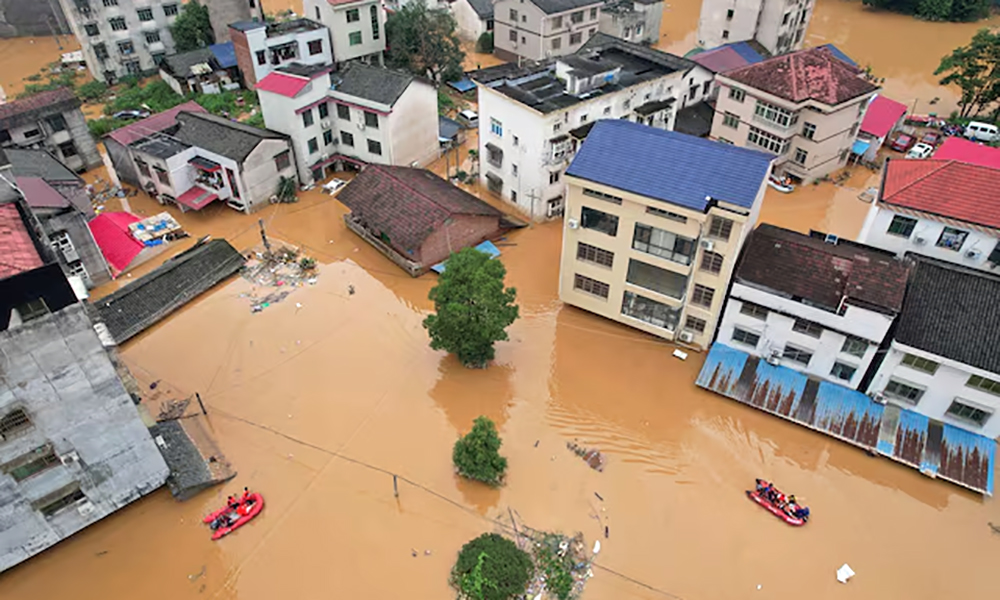
Two tropical cyclones will bring gales and heavy rain to China’s eastern seaboard this week, with the first expected to make landfall on Sunday, after deadly flash floods struck the country’s interior over the weekend.
Cyclone Prapiroon is expected to make landfall in China’s southernmost island province of Hainan on Sunday night as a strong tropical storm, the first tropical cyclone to hit China this year, national forecasters said.
Formed in the South China Sea, Prapiroon’s centre was about 275 km southeast of the Hainan city of Wanning early Monday, Reuters reported.
The maximum wind speed near its centre will be up to 110 kph when Prapiroon lands, the National Meteorological Centre said, predicting torrential rains in Hainan and along the coast of Guangdong, China’s most populous province.
Later this week, Gaemi, which was about 530 km northeast of Philippine capital Manila on Sunday morning, is expected to brush past the northern tip of Taiwan, then make landfall in China as a typhoon, packing wind speeds of up to 180 kph, according to Chinese forecasters.
Taiwan’s Central Weather Administration said it expected Gaemi to be closest to the island on Wednesday and Thursday, bringing heavy rain.
Extreme rainfall has hit China’s southern, central and eastern parts in a flood season that started earlier than usual this year. Record rainfall pounded southern China in April to June, while in the north, dry weather parched fields and threatened crops.
In the northwestern province of Shaanxi, a highway bridge collapsed on Friday amid torrential rain, killing at least 12, with 31 people and 18 vehicles still missing.
In Sichuan province in the southwest, rescuers had retrieved eight bodies and pulled four people to safety by 8 p.m. on Saturday, after more than 30 went missing amid flash floods.
Regional
China’s Xi urges all-out rescue efforts after highway bridge collapse kills 11
As of 10 a.m. on Saturday, five vehicles were confirmed to have fallen into the water and 30 people were reported missing, state media said.

President Xi Jinping urged all-out rescue efforts after a highway bridge collapse on Friday in Shaanxi province in China’s northwest killed 11 people, state media reported on Saturday.
The incident occurred at 8:40 p.m. (1240 GMT) in Shangluo city on Friday when a highway bridge collapsed due to a flash flood, causing some vehicles to fall into the river.
As of 10 a.m. on Saturday, five vehicles were confirmed to have fallen into the water and 30 people were reported missing, state media said, Reuters reported.
Xi said China is in a critical period for flood control and local governments must take responsibility to enhance monitoring and early warning.
China’s national fire and rescue authority said on Saturday it had dispatched a rescue team to the site that included 859 people, 90 vehicles, 20 boats and 41 drones.
Regional
Widespread telecoms disruptions in Bangladesh as student protests spike
Thursday’s violence in 47 of Bangladesh’s 64 districts killed 27 and injured 1,500, it added, while French news agency AFP put the day’s toll at 32, citing a police spokesman as saying 100 policemen were injured with 50 police booths burnt.
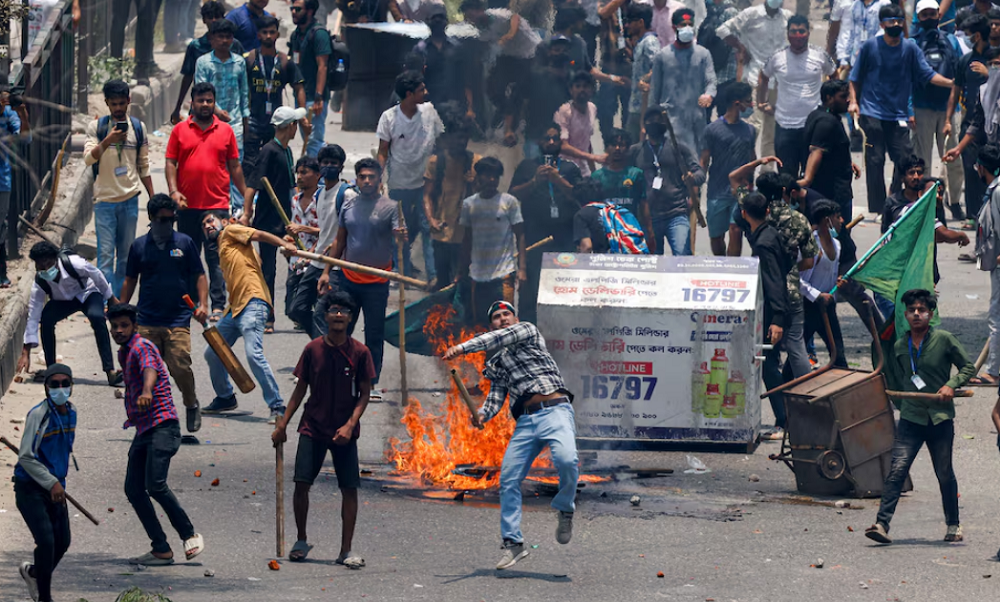
Telecoms links were widely disrupted in Bangladesh on Friday, with television news channels going off the air amid violent student protests against quotas for government jobs that have killed nearly two dozen people this week.
Sparked by student anger against the controversial quotas, the protests, some analysts say, are also being fuelled by economic woes, such as high inflation, growing unemployment and shrinking reserves of foreign exchange, Reuters reported.
The government offered no immediate comment on Friday’s severed communications, but said police in Dhaka, the capital, had barred all public meetings and processions indefinitely.
Police fired tear gas to scatter protesters in some zones of fresh violence, Reuters journalists said, adding that security forces and protesters milled about in the streets of Dhaka.
Protesters blocked roads at many places and threw bricks at security forces, the English-language website of the Bengali newspaper Prothom Alo said.
Thursday’s violence in 47 of Bangladesh’s 64 districts killed 27 and injured 1,500, it added, while French news agency AFP put the day’s toll at 32, citing a police spokesman as saying 100 policemen were injured with 50 police booths burnt.
Reuters, which reported 13 dead, up from a tally of six earlier in the week, could not immediately verify the higher figures.
Citing unidentified sources, India’s Economic Times newspaper said Prime Minister Sheikh Hasina’s government was forced to call in the army late on Thursday to help maintain order.
Reuters could not independently verify the details.
The protests have also opened old and sensitive political faultlines between those who fought for Bangladesh’s independence from Pakistan in 1971 and those accused of collaborating with Islamabad.
The former include the Awami League ruling party of Hasina, who branded the protesters “razakar”, making use of a term that described independence-era collaborators.
Authorities had cut some mobile services on Thursday to try to quell the unrest, but the disruption widened nationwide the next morning, Reuters witnesses said.
Overseas telephone calls and those through the internet were crippled, while the websites of several Bangladesh newspapers did not update on Friday and were also inactive on social media.
A few voice calls went through, but there ws no mobile data or broadband, a Reuters photographer in Dhaka said, adding that even text messages were not being transmitted.
News television channels and state broadcaster BTV went off the air, although entertainment channels were normal, a Reuters witness said.
Some news channels displayed a message blaming technical issues, and promising to resume programming soon, the witness said.
Streets in Dhaka were deserted with little traffic on Friday, a weekly holiday in the Muslim-majority nation, but the witness added that a protest rally had been called for 0800 GMT at the main mosque.
There were no flight disruptions at the main international airport, aviation website Flightradar24 showed.
WEBSITES HACKED
The official websites of the central bank, the prime minister’s office and police appeared to have been hacked by a group calling itself “THE R3SISTANC3”.
“Operation HuntDown, Stop Killing Students,” read identical messages splashed on the sites, adding in crimson letters: “It’s not a protest anymore, it’s a war now.”
Another message on the page read, “Prepare yourselves. The fight for justice has begun,” adding, “The government has shut down the internet to silence us and hide their actions. We need to stay informed about what is happening on the ground.” Giant neighbour India once again urged its citizens in Bangladesh to avoid local travel and limit movement.
The nationwide agitation, the biggest since Hasina was re-elected this year, has been fuelled by high unemployment among the youth, most of them out of education or work, who make up nearly a fifth of a population of 170 million.
Protesters want the government to stop setting aside 30% of government jobs for the families of those who fought for independence from Pakistan.
Bangladesh’s Supreme Court, which has set an Aug.7 date to hear an appeal by Hasina’s government against a high court order last month to reinstate the quota system scrapped in 2018, has suspended the lower court’s order until the hearing.
On Thursday, the government said it was willing to hold talks with the protesters, but they refused, saying, “Discussions and opening fire do not go hand in hand.”
Dhaka’s main university campus had been the site of the worst protests, but Thursday saw bigger demonstrations elsewhere.
Reeling from the ripple effects of the Russia-Ukraine war, Bangladesh got a $4.7-billion bailout from the International Monetary Fund in January 2023.
In June it got immediate access to IMF loans of about $928 million for economic support and about $220 million to fight climate change.
-

 Sport4 days ago
Sport4 days agoOlympics finally here; What you need to know
-

 Health4 days ago
Health4 days agoHealth partners provide services 589,205 people in Afghanistan in last month
-

 Business5 days ago
Business5 days agoConference on Islamic microfinance kicks off in Kabul
-

 Latest News4 days ago
Latest News4 days agoAfghanistan’s Hajj ministry confirms death of 27 pilgrims in Mecca and Medina
-

 Sport4 days ago
Sport4 days agoACB proposes ODI fixtures against top-tiered teams
-
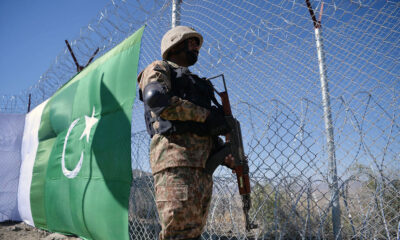
 Latest News4 days ago
Latest News4 days agoIslamabad claims three terrorists killed at Pakistan-Afghanistan border
-
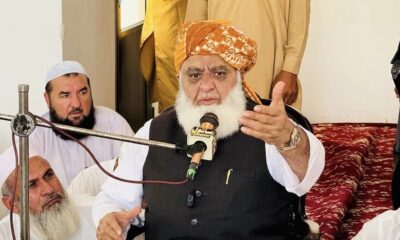
 Latest News5 days ago
Latest News5 days agoPakistan blames Afghanistan for its security failures: Fazl-ur-Rahman
-
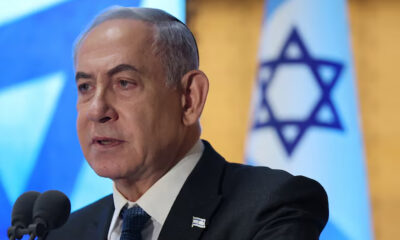
 World4 days ago
World4 days agoNetanyahu says Israel will be a key US ally whoever replaces Biden


